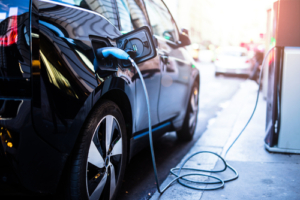Are Electric Cars the Future of Transportation or a Government Overreach?
Governments around the world are pushing for a transition away from fossil fuels towards electric vehicles (EVs). In the United States, the government allocated $7.5 billion in 2022 to build a network of EV charging stations, with a promise to have half a million stations across the nation by 2030. However, the progress on this promise has been slow, with only seven charging stations built in four states since the bill was passed.
The Department of Transportation has not provided any explanation for the delay, while the Federal Highway Administration claims they are carefully selecting locations for the stations. Despite the government’s confidence in achieving their target by 2027, only 7.6% of vehicles in the country are currently electric, and consumers and the private sector have expressed reluctance to switch away from traditional vehicles.
One of the major concerns surrounding the push for EVs is the lack of infrastructure, with not enough charging stations available to make them a practical option for most people. The government has also allocated $2.5 billion in grants to implement charging stations in disadvantaged communities, where residents may not have the means to afford electric vehicles.
Critics argue that the real agenda behind promoting EVs is to make car ownership less attainable and move towards a more public transportation-focused model. The private sector has been resistant to the push for EVs, with many companies pushing back against government mandates. In fact, over 3,000 auto dealers from all 50 states penned a letter to President Joe Biden, stating that the target of having 50% of all car purchases be electric by 2030 is unattainable.
The debate over EVs extends beyond just the US, with the National Renewable Energy Laboratory estimating that the country needs 1.2 million charging stations by 2030, compared to the White House’s goal of 500,000. The disconnect between government targets and the realities of the market and consumer demand highlights the challenges of transitioning to electric vehicles.
At Extreme Investor Network, we believe in providing you with accurate and insightful analysis of current economic trends and policy decisions. Stay informed with our latest updates on the shifting landscape of the automotive industry and its impact on the economy.


